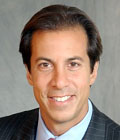14th Annual Wharton Investment Management Conference
Friday, October 12, 2012
The Union Club of Philadelphia
Panels
Long/Short Investing
Despite the recent market dislocations, equity hedge funds specializing in stock picking survived and thrived by employing a diverse set of tactics to uncover value in the markets. Panelists will discuss their experiences in the industry and how they have crafted unique approaches to finding distinctive investment ideas, from small-cap value investing to activist approaches. The panel will also discuss career development in long-short hedge fund industry and current ideas and investment themes.
Speakers:
William Graves - CIO & Founder, Boardman Bay Capital

William Graves
CIO & Founder
Boardman Bay Capital
Will is the CIO and Founder of Boardman Bay Capital Management, a long/short equity fund focused on the global tech, media and telecom (TMT) sectors and launched in 2012. Will worked at Stark Investments, a global multi-strategy hedge fund, for nearly five years, where he was a long/short portfolio manager and the global technology sector head. Will was a founding Portfolio Manager at Talpion Fund Management, a family office and hedge fund launch in 2010-2011. From 2000 through 2004, Will worked in Silicon Valley in the nascent “cloud-computing” space, raising capital for a venture backed start-up which was later sold to Sun Microsystems. Will holds an MBA from the Wharton School at the University of Pennsylvania (2000) and a Bachelor of Science from the U.S. Naval Academy in Political Science and General Engineering (1992).
Ali Namvar - Partner, Pershing Square Capital Management

Ali Namvar
Partner
Pershing Square Capital Management
Ali Namvar is a Partner at Pershing Square Capital Management, L.P., a concentrated fundamental value investor in the public markets, typically focusing on large-cap and mid-cap companies. Pershing Square often plays an active role in its investments by working with the boards and management teams of its portfolio companies to increase long-term shareholder value. As a senior member of Pershing Square’s investment team, Mr. Namvar primarily focuses on investment idea generation and engagement with portfolio companies. Since joining Pershing Square in January 2006, Mr. Namvar has been responsible for the firm’s investments in Fortune Brands, Kraft Foods, Beam, Cadbury Schweppes and Procter & Gamble, among others.
Prior to joining Pershing Square, Mr. Namvar worked in the mergers and acquisitions department of the Blackstone Group and the investment banking division of Goldman Sachs. Before pursuing a career in investing and finance, Mr. Namvar was a songwriter and music producer. Mr. Namvar graduated magna cum laude with a B.A. from Columbia University and an M.B.A. from the Wharton School of the University of Pennsylvania.
Lisa Rapuano - Founder and Portfolio Manager, Lane Five Capital

Lisa Rapuano
Founder and Portfolio Manager
Lane Five Capital
Lisa Rapuano has over 18 years investment management experience as the Founder and Portfolio Manager of Lane Five Capital Management, as a long/short hedge fund manager, as a Director of Research, as the sole manager of a $3.5 billion mutual fund, and as an analyst. Lane Five Capital Management, which Lisa founded in 2006, is a concentrated, valuation-driven investment partnership. Lane Five’s strategy is to buy significantly undervalued securities of businesses it believes can create long-term value for shareholders and to hold them for many years. Lane Five manages over $100 million in assets. From January 2004 to February 2006, Lisa was the Co-Chief Investment Officer of Matador Capital Management. At Matador, Lisa managed over half of the $600 million fund on both the long and the short side. After her departure in 2006, Matador closed its funds.
Previously, Lisa managed the Legg Mason Special Investment Trust from 2001 through 2003. Her cumulative returns ranked Special in the top 8% of mid-cap core mutual funds. From late 1997 through 2000 she co-managed this fund with Bill Miller. During this period she also served as the Director of Research for Bill Miller’s group at Legg Mason Capital Management.
Lisa earned the Chartered Financial Analyst (CFA) designation in 1994. She graduated from Yale University with a BA in American Studies in 1988 where she was also an All-American swimmer and competed in the Olympic Trials in the 50 and 100 meter freestyles. She competes at a Masters level currently, and lane five is her lucky lane.
Credit Investing
In 2012, the ongoing European crisis drove credit spreads, which moved in close concert with events in the Eurozone. Meanwhile, the Fed continues to implement the quantitative easing policies and maintain historically low yields on Treasuries. In this context, credit investing remains as challenging as ever, and investment managers must adjust to a new environment of yield and risk. The Credit Panel will review how their firms approach investing in credit, as well as current investment themes and viewpoints. Panelists will also discuss career development, and changing trends in the industry.
Speakers:
Michael Burns, CFA - Senior Vice President, PIMCO

Michael Burns, CFA
Senior Vice President
PIMCO
Mr. Burns is an executive vice president and account manager in the London office, focusing on institutional client service. He previously served as an account manager and mortgage product specialist in PIMCO’s Newport Beach office. Prior to joining PIMCO in 2002, he worked in the mortgage-backed securities group at Trust Company of the West. He has 14 years of investment experience and holds an MBA from the Wharton School of the University of Pennsylvania. He received an undergraduate degree from Boston College.
Karen Choi, CFA - Fixed-Income Analyst, The Capital Group Companies

Karen Choi, CFA
Fixed-Income Analyst
The Capital Group Companies
Karen Choi is a fixed-income investment analyst for Capital Research Company, with domestic utilities responsibilities. Prior to joining Capital Research in 2007, she was a senior vice president and a fixed-income analyst with AllianceBernstein. Prior to that, she worked as a fixedincome analyst with Prudential Financial. Ms. Choi earned a BA in international relations from Wellesley College. She holds the Chartered Financial Analyst designation and is based in New York.
Peter R. Duffy, CFA - Senior Portfolio Manager & Partner, PENN Capital Management

Peter R. Duffy, CFA
Senior Portfolio Manager & Partner
PENN Capital Management
Peter R. Duffy began his career at PENN Capital Management in October 2006. As a Senior Portfolio Manager at PENN, Peter is responsible for the day-to-day management and oversight of the high yield portfolios and trading function and is Chairman of the Credit Strategy Committee.
Prior to joining PENN, Peter was a Director for Deutsche Asset Management’s $5 billion global high yield debt team. Previously, Mr. Duffy served as a finance manager for mergers & acquisitions at GE Capital and as a senior management consultant at Arthur Andersen LLP.
Mr. Duffy majored in Finance while receiving a BS, Summa Cum Laude, from Villanova University in 1994 and an MBA from The Wharton School of the University of Pennsylvania in 2005.
Justin Gerbereux - Portfolio Manager, T. Rowe Price

Justin Gerbereux
Portfolio Manager
T. Rowe Price
Justin Gerbereux is a portfolio manager for high yield strategies and team leader on the high yield research team in the Fixed Income Division at T. Rowe Price. He is executive vice president of the Institutional Income and Floating Rate strategies and cochairman of the Investment Advisory Committee and co-portfolio manager for the Floating Rate and Institutional Floating Rate strategies. Mr. Gerbereux also is a vice president of T. Rowe Price Group, Inc., T. Rowe Price Associates, Inc., and T. Rowe Price Trust Company.
Mr. Gerbereux has 13 years of investment experience, nine of which have been at T. Rowe Price. Prior to joining the firm in 2003, he worked as an equity research intern with Mellon Growth Advisors, LLC, in Boston and was a senior investment associate and investment performance analyst at Cambridge Associates LLC in Arlington, Virginia.
Mr. Gerbereux earned a B.S. in business administration from the University of Mary Washington and an M.B.A. in business administration from the University of Virginia, Darden School of Business. He also has earned the Chartered Financial Analyst designation.
Harley Lank - Portfolio Manager, Fidelity Asset Management

Harley Lank
Portfolio Manager
Fidelity Asset Management
Harley Lank is a portfolio manager for Fidelity Asset Management. Fidelity Investments is a leading provider of investment management, retirement planning, portfolio guidance, brokerage, benefits outsourcing and other financial products and services to more than 20 million individuals, institutions and financial intermediaries.
Mr. Lank currently manages Fidelity Advisor High Income Advantage Fund. He also manages the U.S. high-yield subportfolios for Fidelity Puritan Fund and Fidelity Global High Income Fund, in addition to serving as a co- manager on all of Fidelity’s collateralized loan obligation (CLO) pools of money. Mr. Lank also is responsible for managing various high-yield portfolios not available to U.S. investors.
Mr. Lank joined Fidelity in 1996 as a high-yield analyst and has covered a number of industries, including energy, wireless telecommunications, health care, steels, and metals and mining. He was the sole portfolio manager on Fidelity’s CLOs from inception in 2001 until July 2007, Fidelity Floating Rate Central Investment Portfolio from December 2004 until August 2007 and the preferred stock portion of Fidelity Advisor Strategic Dividend and Income Fund until October 2010. He began co-managing Fidelity Advisor High Income Advantage Fund in September 2009 and fully managing the fund in August 2010. He began co-managing Fidelity Global High Income Fund in May 2011.
Born in 1968, Mr. Lank received a bachelor of science degree in business from Syracuse University in 1990 and an MBA from The Wharton School at the University of Pennsylvania in 1996.
Long-Only Investing
The Long-Only Panel will provide an overview of the sector and how to best prepare for a career in traditional fund management. Senior portfolio managers will address approaches and strategies for uncovering investment opportunities. Panelists will also offer their outlooks for both the domestic and international markets and how to manage risk in the current volatile landscape.
Speakers:
Mark Cooper, CFA - Equity Analyst, PIMCO

Mark Cooper, CFA
Equity Analyst
PIMCO
Mr. Cooper is a senior vice president and equity analyst in the New York office. Prior to joining PIMCO in 2010, he was partner, portfolio manager and equity analyst at Omega Advisors, a New York City hedge fund, focusing on global industrials, capital goods and commodities. He previously worked as a global industrials analyst at Pequot Capital Management and as a fixed income, foreign exchange and precious metals portfolio manager at J.P. Morgan. Mr. Cooper is also Adjunct Professor in Finance and Economics at Columbia Business School, where he teaches a course on applied value investing. He has 20 years of investment experience and holds an MBA from Columbia Business School and a bachelor's degree in management science from the Massachusetts Institute of Technology. He is a former United States Army officer.
Eileen Dibb - Portfolio Manager, Pyramis Global Advisors

Eileen Dibb
Portfolio Manager
Pyramis Global Advisors
Eileen Dibb is a portfolio manager at Pyramis Global Advisors, a unit of Fidelity Investments. She manages Japan equity portfolios including the Japan portion of the Pyramis International Growth strategy.
Prior to assuming her current role at Pyramis, Eileen was responsible for researching and analyzing Asian stocks for a global equity portfolio managed by Fidelity Investments. Prior to joining Fidelity in 2005, Eileen was vice president and regional analyst at Wellington Management Company, where she managed dedicated Japan portfolios. Prior to joining Wellington in 1999, she was an international equity analyst at DuPont Pension Fund, beginning in 1997. Eileen also served in a number of roles at The Dai-ichi Mutual Life Insurance Company from 1992 through 1996.
Eileen earned a Bachelor of Arts degree in International Relations and Japanese Studies from Bucknell University and a Master of Business Administration degree from The Wharton School at the University of Pennsylvania. She completed a program of study at the Center for Japanese Studies at Nanzan University in Nagoya, Japan and is fluent in Japanese. She is a Chartered Financial Analyst (CFA) charterholder, and is a former board member of the Boston Security Analysts Society.
Jamieson Odell - Partner, Deputy Global Portfolio Manager,

Jamieson Odell
Partner, Deputy Global Portfolio Manager
Caravel Management LLC
Jamieson Odell has four years buy-side experience covering Africa and four years Emerging Markets investment banking and finance experience. Prior to joining Caravel, Mr. Odell was an investment banking Associate in J.P. Morgan’s New York Financial Institutions coverage team (2005-2006). He was an investment banking Analyst in J.P. Morgan’s South Africa Corporate Finance team and ABS group in New York (2002-2005), focusing on transportation, mining, financial services and retail. Jamieson has an MBA from the Wharton School and A.B. from Princeton University.
Donald Peters - Vice President & Portfolio Manager, T. Rowe Price

Donald Peters
Vice President & Portfolio Manager
T. Rowe Price
Don Peters is a vice president of T. Rowe Price Group, Inc., and T. Rowe Price Associates, Inc., and a portfolio manager in the U.S. Equity Division. He is a portfolio manager for major institutional relationships with our structured active and tax-efficient strategies and the Diversified Mid-Cap Growth Fund and Tax-Efficient Equity Fund Prior to joining the firm in 1993, he was a portfolio manager for Geewax, Terker and Company. Don is a former naval officer and was interviewed and selected by Admiral Hyman G. Rickover to work on his headquarters staff for the Navy’s nuclear propulsion program. He earned a B.A., summa cum laude, in economics from Tulane University and an M.B.A. in finance from the Wharton School, University of Pennsylvania. Don is also a member of Phi Beta Kappa. He is the author of “Valuing a Growth Stock” Journal of Portfolio Management, Spring, 1991; “Are Earnings Surprises Predictable?” Journal of Investing, Summer, 1993; “The Influence of Size on Earnings Surprise Predictability” Journal of Investing, Winter, 1993; (with Richard T. Whitney) “The Changing Balance of Power Between the Buy and Sell Sides” Journal of Investing, Fall, 1996; (with Mary J. Miller) “Taxable Investors Need Different Strategies” Journal of Investing, Fall, 1998; “What a Portfolio Manager Needs to Successfully Implement a Tax Efficient Strategy” Journal of Investing, Spring, 2003; (with Sudhir Nanda) “A Very Long-Term Buy-and-Hold Portfolio” Journal of Portfolio Management, Spring, 2006 and A Contrarian Strategy for Growth Stock Investing, Quorum Books, 1993. Don is a member of the Investment Committee and a Trustee of the Baltimore Museum of Art.
Distressed Investing Panel
As the world continues the deleveraging cycle we are entering an era of uncertainty. Unemployment rates are high, Europe is in turmoil, China's booming economy seems to be slowing, Middle East tensions run high, oil prices and food prices are rising and the US faces a significant fiscal cliff. However, deleveraging has also created an era rife with opportunities for the distressed investor. What is the current outlook for distressed investing? Which geographies or sectors offer the most opportunities? How should firms manage the risks of distressed investing today, and differentiate between value opportunities and traps? The panel will also discuss how to develop a personal and firm niche in distressed investing.
Speakers:
Eric Lee - Managing Director & Partner, PointState Capital LLP

Eric Lee
Managing Director & Partner
PointState Capital LLP
Eric T. Lee is a Managing Director and Partner of PointState Capital LP, a New York-based investment management firm founded in January 2011 by a group of investment professionals who had previously worked together at Duquesne Capital Management L.L.C. At PointState, Eric manages a portfolio consisting principally of high yield and distressed credit investments. Prior to joining PointState, Mr. Lee was a Managing Director at Duquesne, where he managed high yield and distressed credit investments from 2005 through December 2010. Before Duquesne, Mr. Lee had been a Director at Deutsche Bank, where he worked since 1998. Mr. Lee graduated from the University of Pennsylvania in May 1998 with a B.S. in Economics from The Wharton School.
David Markus - Managing Director, Fortress Investments

David Markus
Managing Director
Fortress Investments
David Markus focuses on credit and event driven strategies for the Fortress Partner Funds, a $1.8 billion endowment model fund that invests in hedge funds, private equity fund and direct investments. Prior to joining Fortress, Mr. Markus was part of the team that launched and ran Voras Capital, a multi-strategy investment manager based in New York with offices in Hong Kong and London. Prior to Voras, David was the co-portfolio manager at Boone Capital Management and Delaware Street Capital, multi-strategy credit hedge funds with several hundred million dollars in assets under management. David has also worked as a senior high-yield and distressed debt research analyst at Amroc Investments and Salomon Brothers, and as an associate in the private placement group of TIAA-CREF. He received an MBA from the Wharton School in 1991 where he was on the Directors Honor List and a BS in Economics from the University of Pennsylvania in 1986. Mr. Markus is a Trustee for Congregation Rodeph Sholom and the Rodeph Sholom School.
Joshua Nahas - Principal, Wolf Capital Advisors

Joshua Nahas
Principal
Wolf Capital Advisors
Joshua Nahas is the Principal of Wolf Capital Advisors, an advisory firm focused on distressed debt and corporate restructuring. Mr. Nahas provides advisory services to hedge funds, private equity funds corporations and their creditors on issues ranging from investing in distressed debt, corporate restructuring, covenant and documentation review as well distressed M&A.
He has over 12 years experience in investment banking, financial restructuring and as a Portfolio Manager and Senior Analyst at distressed debt / event driven hedge funds. Some of the larger bankruptcies he has participated in as an investor include Mirant, Calpine and Northwest Airlines.
The Seven Rules of Wall Street
“Sell in May, and then go away.” It's an old saying, but this Wall Street adage is as relevant today as when it was first uttered. In The Seven Rules of Wall Street, Sam Stovall presents seven familiar sayings that convey enduring truths and serve as superb investment strategies. In this engaging guide, Stovall subjects his chosen sayings to the facts of history and his own personal experience. Other Wall Street one-liners that emerge as truisms include: “Let your winners ride, but cut your losers short,” "As goes January, so goes the year," "Don't get mad—get even," "Don't fight the Fed," and "There's always a bull market someplace."

Sam Stovall
Chief Investment Strategist
Standard & Poor’s Equity Research
As chief equity strategist of the S&P Capital IQ Equity Research Department, Sam serves as analyst, publisher and communicator of S&P’s outlooks for the economy, market, sectors and stocks. He is the Chairman of the S&P Capital IQ Equity Research Investment Policy Committee, where he focuses on market history and valuations, as well as industry momentum strategies. Sam is the author of The Seven Rules of Wall Street, published in early 2009, as well as The Standard & Poor’s Guide to Sector Investing. He writes a weekly investment piece on S&P’s MarketScope Advisor platform, focusing on market and sector history, as well as industry momentum. His work is also frequently found in S&P’s flagship weekly newsletter The Outlook.
Sam joined Standard & Poor’s in April 1989. Prior to S&P, he served as Editor In Chief at Argus Research, an independent investment research firm in New York City. He received an MBA in Finance from New York University and a B.A. in History/Education from Muhlenberg College, in Allentown, PA.



